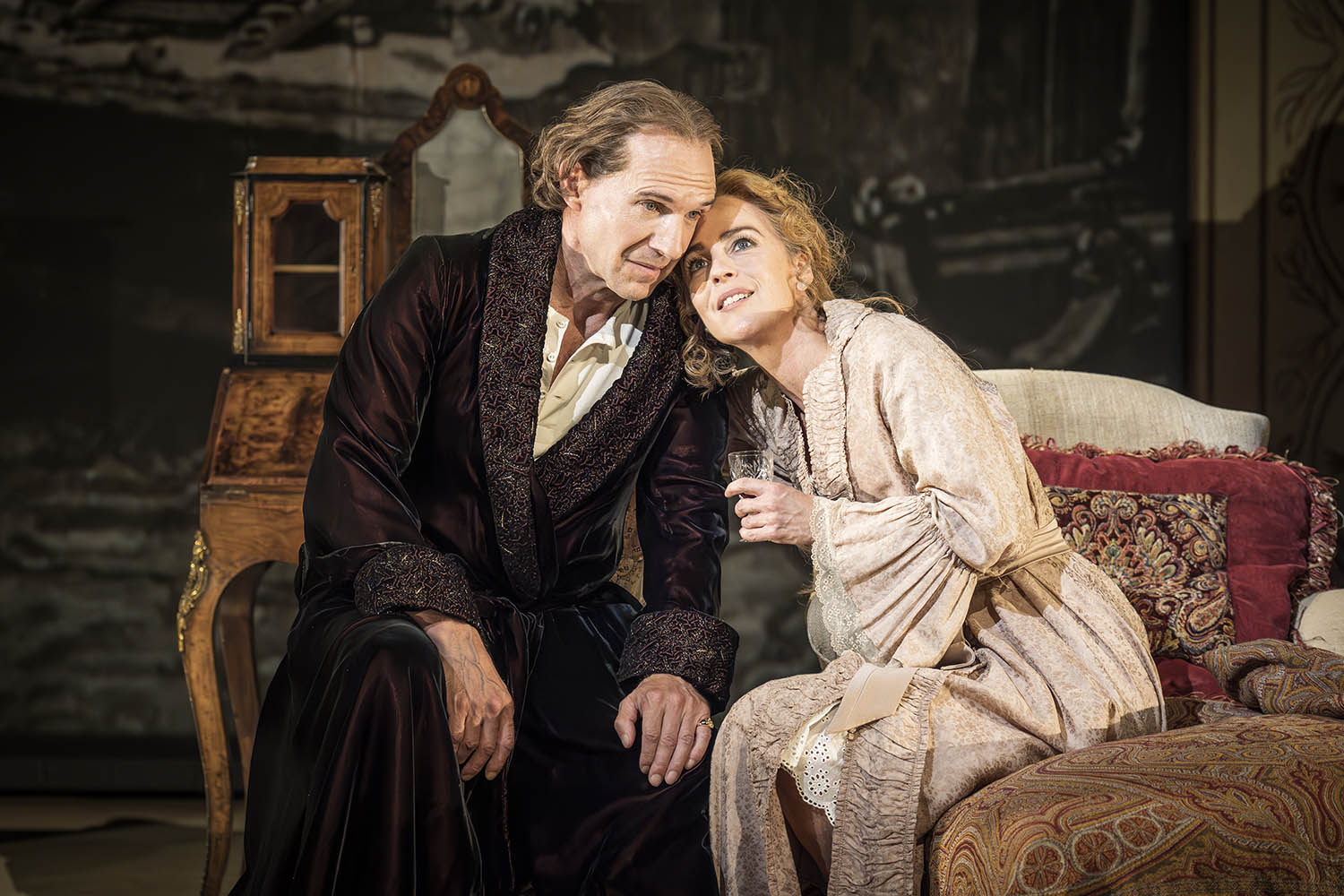Ralph Fiennes has made a witty choice. He launches a Bath season – which he has programmed and in which he directs and acts – with a new play about a crowd-pulling Victorian actor who ran his own theatre.
In the 1870s, Henry Irving was the most popular male actor on the London stage, a performer of flourish, who was credited with making the stage respectable: he was the first theatrical knight. He was also a saturnine celebrity – Bernard Shaw mocked him in The Man of Destiny – whose glowerings are laughed at here when he enters as a tormentedly grinning Malvolio.
Irving ran the Lyceum but he shared its audience’s love with Ellen Terry, an actor who was said to speak Shakespeare’s words as if she were repeating something she had heard at home. It is her grace that pervades this stage.
Inspired by Michael Holroyd’s 2008 book A Strange Eventful History – which traces the lives of the two actors and Terry’s extraordinary children, Edward Gordon Craig and Edith Craig – Fiennes suggested to David Hare that their story might trigger a play. Hare has done them proud. Heartfelt, truly feminist and funny, Grace Pervades shows how character is made, on and off stage. It examines the theatre of the last 150 years, and the waywardness of inheritance, without being history-crammed. It is fleetly directed by Jeremy Herrin.
This is an evening not of dynamic plot but of anecdotal scenes yielding vital contrasts. Everyone is continuously debating – not merely in words but in their persons – what a character can be, what the stage should offer. Irving is all will and determination. Nothing is unstudied: “I shall try to be more last minute,” he announces to his lover Terry, who also advises him to look at his fellow actors as well as the audience.
For Irving, the stage was everything. For Terry, it was incidental to the richness of her life
For Irving, the stage was everything. For Terry, it was incidental to the richness of her life
He fought a stammer – Fiennes imitates it only once but indicates a lifetime of elocution with emphatic endings to words. He struggled against ungainliness: Fiennes’s feet are turned out as if straining for a ballet position. He is mannered (Terry teases him for his pronunciation of “good” as “gud”); Fiennes has an Olivier-as-Richard III look. And yet, how he gleams. This is a terrific incarnation: never ingratiating, yet catching at the heart.
For Irving, the stage was everything. For Terry, it was incidental to the richness of her life. He was all resolution; she appeared wholly natural. Coming from an acting dynasty, it might seem that she put on a family mantle, as did her great-nephew John Gielgud. But Terry was fed up with people praising her charm, rightly thinking this undersold her professional skill. She didn’t use the word misogyny, but I would. In an illuminating scene, she derides being praised for “floating” across the stage, as if she had fairy feet – and demonstrates how she manufactures the impression. She was the face of Rimmel; she was also the author of lectures on Shakespeare, unforgettably staged by Eileen Atkins 11 years ago. Miranda Raison exactly, finely, suggests both intelligence and lightness, the rare marvel of an actor (Atkins is another, Carey Mulligan a third) who seems not to project but to transmit.
Terry’s children are seen, laughably and truthfully, as astonishing opposites. Her son, Edward Gordon Craig, was a visionary shit. He foresaw modern stage design, abandoning naturalistic clutter in favour of shafts of lighting and screens: Bob Crowley’s design – enclosed in a gold Victorian proscenium arch – deftly reproduces the monumental pillars and uncomfortable thrones of his Hamlet.
Mesmerised by his own talent, and by his mother, Craig was full of dreams but got hardly anything produced. He wanted a stage free of words – and of actors, preferring marionettes. He was keen on Mussolini. Jordan Metcalfe captures his preening and petulance, though not the magnetism that enabled him to have 13 children by eight women.
Sister Edy is vivaciously embodied by Ruby Ashbourne Serkis: surrounded by female lovers, dressed in tweed, blazing with principle. A suffrage campaigner and costume designer, she founded a theatre company, Pioneer Players, believing the stage was nothing if it did not change people’s minds. Virginia Woolf characterised her as a woman “all agog to get things up”.
Newsletters
Choose the newsletters you want to receive
View more
For information about how The Observer protects your data, read our Privacy Policy
Irving and Terry are equally honoured here – but not elsewhere. Outside the National Portrait Gallery is a statue of Irving. Why, when the gallery was reorganised, emphasising a new gender equality, did it not put up a statue to Terry? The woman who “turned critics into lovers”.
Grace Pervades runs at Theatre Royal Bath until 19 July
Photograph by Marc Brenner

